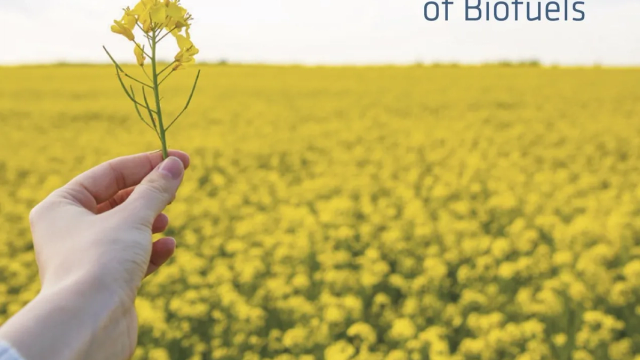New Report: "Roadmap to 2050: The Land-Water-Energy Nexus of Biofuels"
A global perspective on the sustainability of biofuels in the 2050 decarbonization landscape
New York | November 5, 2021
In the face of rapidly approaching deadlines for countries to submit their Nationally Determined Contributions (NDCs) at COP26 , the establishment of concrete plans to mitigate climate change is currently at the forefront of global dialogues and priorities. In order to secure the rights of current and future generations, societies must transition toward total decarbonization by 2050. This transition is required to limit the rise in mean global temperature to 1.5°C, as specified by the Paris Agreement, and to ensure access to affordable, clean, and reliable energy to all, as specified by SDG 7. It is crucial to meet these objectives using an integrative approach that accounts for social, economic, and environmental well-being, including when decarbonizing the world’s most energy-intensive sectors, such as transportation.
According to the Intergovernmental Panel on Climate Change (IPCC)’s 2019 Special Report on Climate Change and Land , the pace of decarbonization needed to meet the 1.5°C target must include more biofuels and electrification in the transport energy mix. Reports published by the International Energy Agency (IEA) and the Energy Transitions Commission (ETC) this year also highlight the important role that biofuels must play in reaching net-zero emissions and sustainably scaling the transportation sector. Thus, the Sustainable Development Solutions Network (SDSN) and Fondazione Eni Enrico Mattei (FEEM) joined forces to create the Roadmap to 2050: The Land-Water-Energy Nexus of Biofuels , launched alongside the Zero Emissions Solutions Conference (ZESC) in November of 2021.
This report is the result of a workshop held in late 2020 where land-use, energy, water, and biofuel technology scientists, engineers, and professionals from around the world explored the incorporation of biofuels into decarbonization strategies at national and sectoral scales. It adds onto FEEM and SDSN’s Roadmap to 2050: A Manual for Nations to Decarbonize by Mid-Century published in 2019, which discussed the state of decarbonization technologies in the power, industry, transport, and buildings sectors. Although land-use, agriculture, and biofuels were identified as potential key solutions, they were not analyzed in depth in the first report. Therefore, this new report, Roadmap to 2050: The Land-Water-Energy Nexus of Biofuels, covers “the intricacies of the global biofuel market, the evolution of key technologies, and the intersection of biofuel production on the land, water, and the local economies from which they are created.”
The analysis focuses on both the technical application and market implications of sustainable traditional crop-based, second generation, and third generation biofuels. Controversies connected to the scalability of biofuels, such as potential competition with agriculture and the resulting impacts on food security, are addressed with a holistic approach. Additionally, the report includes case studies of biofuels in Malaysia, Indonesia, Brazil, the United States, and the European Union, as well as relevant policy recommendations.
Key findings of the report include:
- Learning from the challenges historically associated with traditional biofuel production, such as land use competition with food resources, water scarcity issues, and adverse impacts on global markets, it is essential to produce biofuels more sustainably in the future.
- Expecting biofuels to produce 10% or even 20% of our renewable energy needs is a feasible and realistic path toward large-scale negative emissions over the next two decades.
- Performing proper life-cycle analysis in production and supply chains could help biofuels play a key role in the aviation, heavy-duty transport, and shipping sectors pathways to net zero.
- New technologies, crop management diversification practices, life-cycle analysis, and certification schemes will be needed and are currently being developed to produce sustainable biofuels.
To learn more, please access the full report here.
